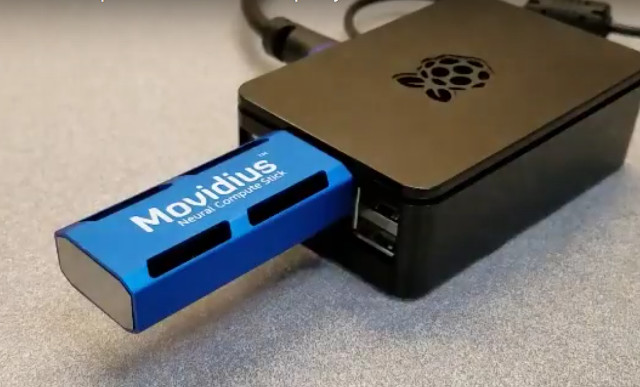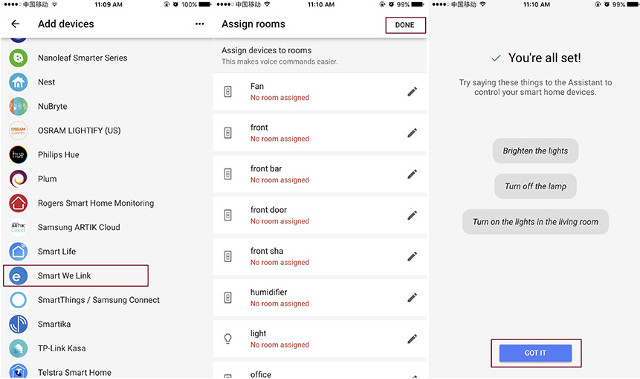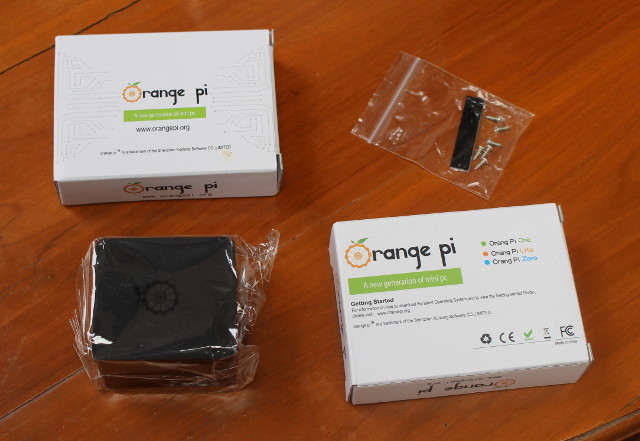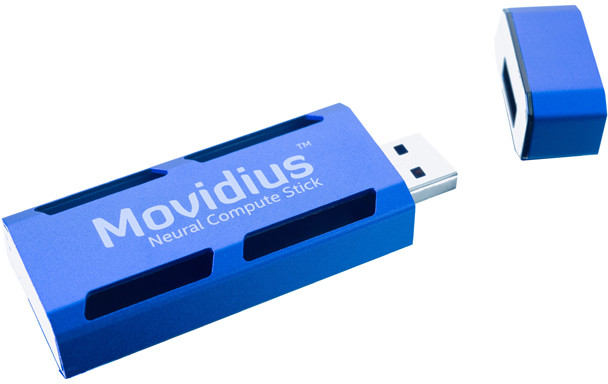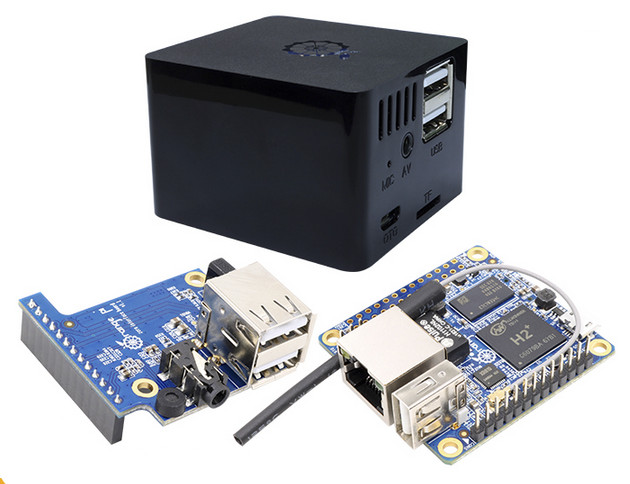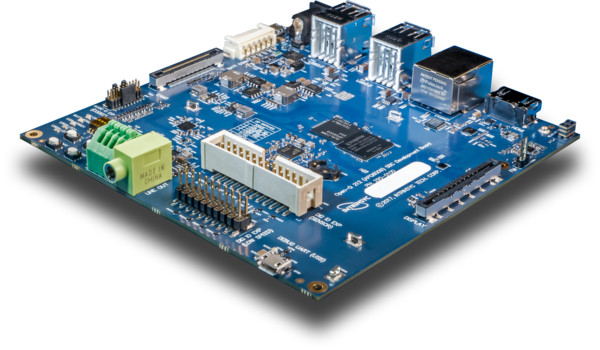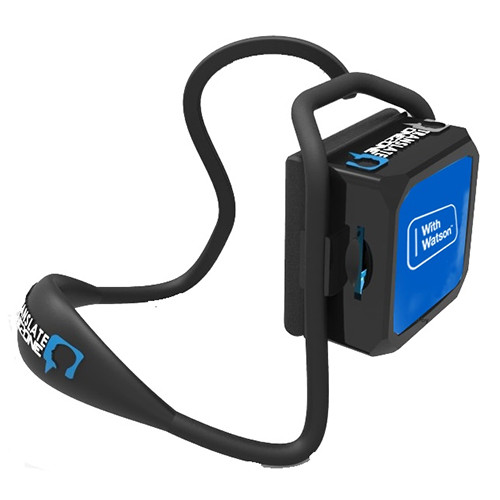Intel recently launched Movidius Neural Compute Stick (MvNCS)for low power USB based deep learning applications such as object recognition, and after some initial confusions, we could confirm the Neural stick could also be used on ARM based platforms such as the Raspberry Pi 3. Kochi Nakamura, who wrote the code for GPU accelerated object recognition on the Raspberry Pi 3 board, got hold of one sample in order to compare the performance between GPU and MvNCS acceleration. His first attempt was quite confusing as with GoogLeNet, Raspberry Pi 3 + MvNCS achieved an average inference time of about 560ms, against 320 ms while using VideoCore IV GPU in RPi3 board. But then it was discovered that the “stream_infer.py” demo would only use one core out of the 12 VLIW 128-bit vector SHAVE processors in Intel’s Movidius Myriad 2 VPU, and after enabling all those 12 cores instead of just one, […]
Sonoff Wireless Switches & Light Bulbs Now Work With Google Home
ITEAD Studio Sonoff wireless switches can be controlled by voice commands using Amazon Alexa or Google Home, but so far, the latter was only possible by emulating Belkin Wemo switch in alternative open source firmwares such as ESPurna or Sonoff-Tasmota. For people who don’t want to update the firmware themselves, and instead prefer to use the stock firmware with eWelink mobile app, the manufacturer has now announced support for Google Home, on top of the already supported Amazon Alexa service. The instructions are explained in details in ITEAD’s blog post, but basically, you need to start Google Home app in your mobile, select your Google Home device, go to Home Control to add Devices, select Smart We Link, login to eWelink with your username/phone number and password, name the devices you want to control and you’re done. You should now be able to control devices or rooms with voice commands […]
Intel’s Movidius Neural Compute Stick Supports Raspberry Pi 3 Board
Last month, Intel introduced Movidius Neural Computer Stick to accelerate applications such as object recognition, and do so offline, i.e. without the cloud, and at low power. While there was not that much information available at the time, the minimal requirements for the host machine were that it had to be a x86_64 computer running Ubuntu 16.04, and come with at least 1GB RAM, and 4GB storage. So I understood the stick would only work attached with 64-bit Intel or AMD processors, and ARM development boards would not be an option. But today, I’ve found that Movidius had uploaded a new video showing a Python based object recognition demo with the Neural Compute Stick connected to the the Raspberry Pi 3 board. You just need to add a USB camera, copy ncapi directory from the SDK installed on your Ubuntu 16.04 development machine to the Debian Jessie installed on RPi 3 […]
How to Setup an Orange Pi Zero DIY Smart Speaker with Google Assistant SDK
A preview release of Google Assistant SDK working with Raspberry Pi 3 and other ARMv7 boards was released in May, and soon after, AIY Projects Voice Kit was offered for free with Raspberry Pi Magazine in order to a complete smart speaker kit working with RPi 3. I wanted to try it on one of FriendlyELEC or Shenzhen Xunlong Allwinner board, since all we need is audio input and output, and an Internet connection. Earlier this month, I came across Orange Pi Zero Set 6 Kit that had all I needed: Orange Pi Zero ARM Linux board, an expansion board with built-in microphone and audio output jack, and a cute and small case to neatly put everything together. Orange Pi Zero Set 6 Kit Unboxing and Assembly Shenzhen Xunlong sent me the kit so that I can try it out. The package includes two Orange Pi packages, the plastic case, […]
Intel’s Movidius Neural Compute Stick Brings Low Power Deep Learning & Artificial Intelligence Offline
Intel has released several Compute Stick over the years which can be used as tiny Windows or Linux computer connected to the HDMI port of your TV or monitor, but Movidius Neural Computer Stick is a complete different beast, as it’s a deep learning inference kit and self-contained artificial intelligence (A.I.) accelerator that connects to the USB port of computers or laptops. Intel did not provide the full hardware specifications for the kit, but we do know the following specifications: Vision Processing Unit – Intel Movidius Myriad 2 VPU with 12 VLIW 128-bit vector SHAVE processors @ 600 MHz optimized for machine vision, Configurable hardware accelerators for image and vision processing; 28nm HPC process node; up to 100 gigaflops USB 3.0 type A port Power Consumption – Low power, the SoC has a 1W power profile Dimensions – 72.5mm x 27mm x 14mm You can enter a trained Caffe, feed-forward […]
$13 Orange Pi Zero Set 6 Kit Could Make an Inexpensive DIY Google Home Alternative
Since Google released the Google Assistant SDK for Raspberry Pi 3, and other ARMv7 boards, I thought I should it try myself on one of the tiny headless boards I have, as you just need audio output and a microphone. I first planed to use NanoPi NEO board with NanoHAT PCM5102A audio board, a cheap USB microphone, and pair of speakers, but this morning, I’ve come across Orange Pi Zero Set 6 kit that looks perfect for this applications and sells for just $12.95 plus shipping ($18.27 in total for me) with Orange Pi Zero board, Orange Pi Zero interface board, and a case. Orange Pi Zero board is powered by Allwinner H2+ quad core Cortex A7 processor with 512MB RAM, and can run the required Ubuntu/Debian distribution using one of the Armbian images, and connected to the Internet over Ethernet or WiFi, however if you want to use the […]
Qualcomm Snapdragon 212 Boards – Intrinsyc Open-Q 212 and Kaynes Technology SKATE-212
Qualcomm Snapdragon 212 (APQ8009) quad core Cortex A7 processor is used in entry-level smartphones, but it’s also one of the processors which the company expects to use in their Smart Speaker Platform leveraging Google Assistant, Amazon Alexa, and other A.I. voice services. Two company has designed single board computers that can be used for this purpose: Intrisync Open-Q 212 and Kaynes Technology SKATE-212. Intrisync Open-Q 212 SBC Development Board Contrary to some other Open-Q boards, but not all, Open-Q 212 is not comprised of a baseboard and a system-on-module, as everything is soldered on a single PCB. Open-Q 212 specifications: SoC – Qualcomm Snapdragon 212 (APQ8009) quad core ARM Cortex A7 processor @ 1.267GHz with Adreno 304 GPU, QDSP6 DSP System Memory – 1GB LPDDR3 Storage – 8GB eMMC (non-POP) flash and micro SD card socket Connectivity – Ethernet, pre-scanned Wi-Fi 802.11n 2.4Ghz (WCN3610) with chip and U.FL antennas, Bluetooth 4.1 […]
Lingmo Translate One2One Earpiece Can Interpret 8 Languages with IBM Watson Natural Language & Translation APIs
Automation are greatly reduce the number of workers requires to perform manufacturing, and now technology is moving forward with artificial intelligence applications writing financial & sports news, analyzing medical imaging or other data to speed up and improve accuracy of diagnostics, and more. Yesterday, I found out that pair programming, which normally combines two human programmer working together on the same program, may soon pair a human programmer with an AI programmer helping selecting the best code, and today I found out live interpreters may get some competitions with products like Lingmo Translate One2One earpiece that can interpret 8 languages nearly in real-time. The device was unveiled at the United Nations Artificial Intelligence (AI) for Good Summit in Switzerland, as it combines IBM Watson’s Natural Language and Language Translation APIs, together with Lingmo’s proprietary hardware and machine learning applications. It’s said to be working as an independent device without the […]


